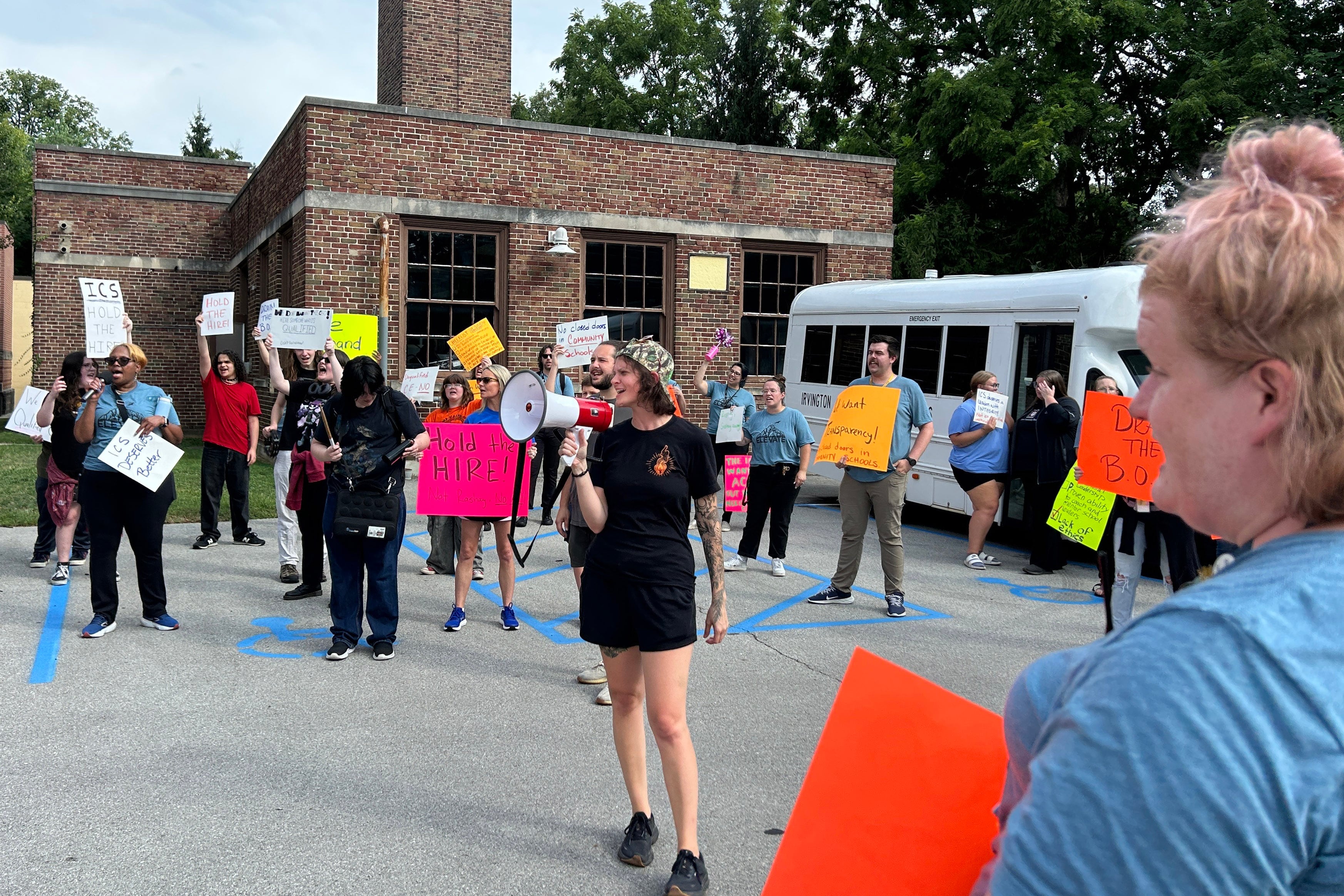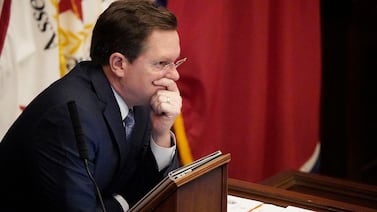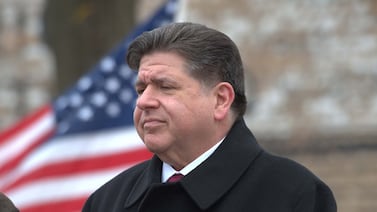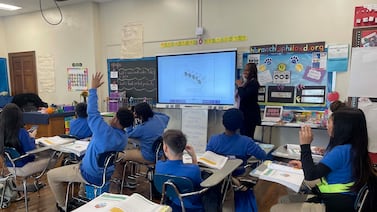Sign up for Chalkbeat Indiana’s free daily newsletter to keep up with Indianapolis Public Schools, Marion County’s township districts, and statewide education news.
The board chair of the Irvington Community Schools charter network resigned her position on Wednesday and a second board member was voted off the board.
The board’s vote to accept chair Rashay Foster’s resignation and remove another board member, Ashli Adams, follows a contentious start of the school year for Irvington Community Schools, which faced criticism from parents, students, and staff over a CEO search that included Foster as a candidate.
After a protest earlier this month, the board reopened the search for the CEO while still calling Foster a “qualified and dedicated educational leader” who applied for the position in good faith. The CEO will lead the charter network, which typically serves over 900 students in K-12 across three separate schools.
ICS staff told Chalkbeat they found out that Foster, the chair of the network’s board of governors, was a “top” candidate at a virtual meeting in the first few days of the school year. Students and staff said that was a conflict of interest. At the protest, they voiced concerns that Foster participated in a hiring process for a position for which she had applied and questioned her qualifications for the job. Staff also took issue that Adams, perceived as a close friend of Foster’s, would vote to decide the next CEO.
In a statement submitting her resignation, Foster nodded to her qualifications. She said she had a teacher’s license, passed an administrator’s exam, and had completed a master’s program in administration and a school management and leadership program at Harvard University.
“My belief in Irvington remains unwavering. My passion lives here, and my commitment to our students has not changed,” Foster said. “That commitment does not depend on holding the title of CEO or board chair.”
Foster said after the meeting that she would not reapply for the CEO position.
In public comment after her removal from the board, Adams said the ouster was an act of retaliation in part for reporting a sexual assault against her by a staff member.
She told Chalkbeat that she reported the assault in May to the board chair and later to the school’s legal counsel. The school’s attorney did not confirm the initial report by deadline.
Earlier this month, she said she also expressed concern to the board that students were encouraged by adults to spread misinformation to the board about the CEO search process.
“Once I brought up both of those concerns, I was asked to recuse myself from further discussion because I was too emotional,” she said. “And so I did recuse myself, because I didn’t want to become a conflict of interest that had been insinuated against me.”
In her statement read before the crowd, Adams said she was not part of the hiring committee, its deliberations or scoring, or who it selected as finalists.
“Legal counsel and our authorizer were consistently consulted by the board throughout the process,” she said. “It is both inaccurate and unfair to shift blame toward me for decisions I had no role in.”
In a statement sent through its attorney after the meeting, the board said that its decisions to remove Adams from the board was for governance reasons and not connected to her public allegation of sexual assault.
“That decision was made for governance reasons—including the Board’s need to preserve impartiality, avoid the appearance of impropriety in ongoing leadership decisions, and maintain effective Board function,” the statement said.
The board said the network is treating the matter as a report following her public disclosure, and that it “immediately initiated the steps necessary for a formal investigation.
“Because these issues involve confidential personnel matters, ICS will not be discussing details publicly while the investigation is underway,” the board said. “We ask our community to allow this process to proceed without speculation.”
Board adopts conflict of interest policy, adds new members
The board on Wednesday also adopted a conflict of interest policy that would prohibit members from being employed by the district while holding office. The policy also states that a current board member cannot apply for any open employment position unless they first resign their position on the board.
The remaining four board members also passed an anti-retaliation policy for board members and appointed three new members.
While charter schools are public schools, the governance of charter schools is left to the charter school organizer, and their boards can be appointed.
In public comment, staff members asked the board for more transparency on board meeting dates and decisions moving forward.
Milo Kaminski, a sophomore at Irvington Preparatory Academy, asked the entire board to step down.
“I currently do not think this board is the right fit for our schools,” Milo said. “They have proven that unless we bring attention to their actions and hold them responsible, they will act on their own like spoiled, unsupervised children.”
The board invited other community members interested in serving on the board to reach out.
Amelia Pak-Harvey covers Indianapolis and Lawrence Township schools for Chalkbeat Indiana. Contact Amelia at apak-harvey@chalkbeat.org.







